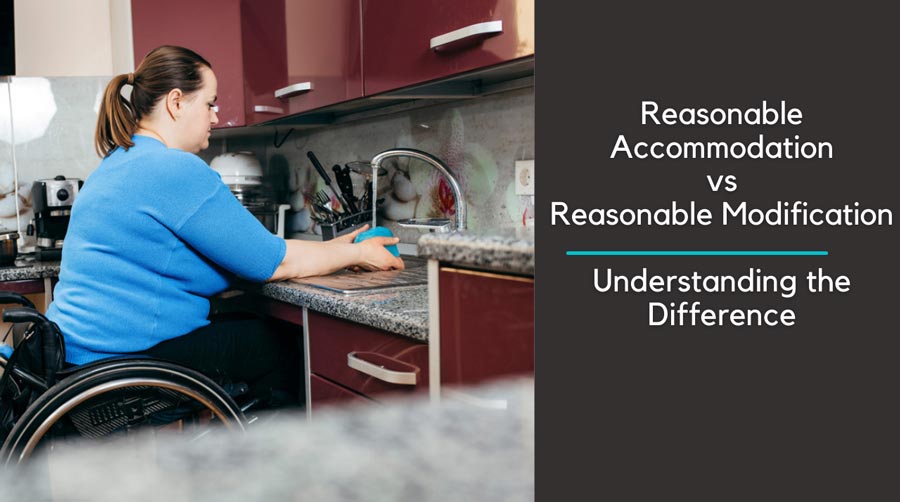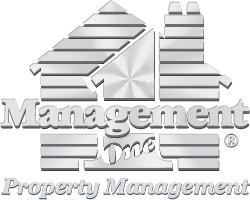
Understanding the Difference: Reasonable Accommodation vs. Reasonable Modification in Property Management
In January 2024, new rental property laws were introduced in California, including a redefined term for ensuring equal access to dwellings for individuals with disabilities. This article's objective is to clarify these legal changes and help California landlords avoid Fair Housing issues.
Navigating the Nuances of Property Management: A Guide to Reasonable Requests
Within property management, the terms "reasonable accommodation" and "reasonable modification" can be confusing despite their differences in ensuring accessibility, particularly for residents with disabilities. This article seeks to demystify these terms and offer clarity to both property managers and residents.
What is Reasonable Accommodation?
Reasonable accommodation entails adjustments or exceptions to rules, policies, practices, or services to ensure equal housing opportunities for individuals with disabilities. It centers around the concept of adapting the way tasks and procedures are conducted.
Key points about reasonable accommodation include:
- Individualized Assessment: Each request for reasonable accommodation should be considered on a case-by-case basis, considering the specific needs of the person with the disability.
- Not Unduly Burdensome: The accommodation should not impose an undue hardship on the landlord such as significant expense or difficulty.
- Interactive Process: Often, fulfilling a request for reasonable accommodation involves an interactive process between the individual with a disability and landlord to determine a suitable accommodation.
- Legal Requirement: In many cities providing reasonable accommodation is a legal requirement under disability rights laws, such as the Americans with Disabilities Act (ADA) in the United States.
- Confidentiality: The process of requesting and implementing reasonable accommodations should respect the individual's privacy and confidentiality.
Understanding and implementing reasonable accommodation is vital for creating inclusive and accessible environments for individuals with disabilities, ensuring they have equal opportunities in housing.
Examples and Scenarios from Fair Housing:
- Allowing a resident with a service animal in a no-pet home.
- Allowing a resident to pay on the 10th of the month instead of the 1st because their disability checks don’t come in until the 9th of the month.
What is Reasonable Modification?
Physical Changes for Accessibility: reasonable modification encompasses physical alterations to the current or prospective living spaces of individuals with disabilities, enabling them to fully enjoy and utilize the premises. It entails making structural changes to the property.
This concept is commonly applied in the context of housing and is distinct from reasonable accommodation, which typically involves changes to rules or policies.
Key aspects of reasonable modification include:
- Physical Alterations: It involves making physical changes to the living environment. Examples include installing grab bars in bathrooms, widening doorways for wheelchair access, or modifying the height of countertops and sinks.
- Purpose: The modifications are made to ensure that a person with a disability has full enjoyment of the housing and its facilities.
- Resident's Responsibility: Unlike reasonable accommodations, which are usually the responsibility of the landlord, reasonable modifications are often made at the expense of the person with the disability. However, there are cases, especially in publicly funded housing, where the housing provider may be required to bear the cost.
- Permission from Housing Provider: Residents may need to seek permission from their landlords before making any modifications. However, under laws like the Americans with Disabilities Act (ADA) and the Fair Housing Act, landlords are generally required to allow these modifications.
- Restoration Requirement: In some cases, the resident might be required to restore the property to its original condition when they move out, especially if the modifications could be deemed unreasonable for future residents.
- Legal Protection: People with disabilities are legally protected to request reasonable modifications in their homes. Housing providers are obligated to allow these modifications when they are necessary for the individual with a disability to fully use and enjoy the dwelling.
- Applicability: Reasonable modification applies to both private housing and publicly funded housing, including rental units and units for sale.
- Advance Planning: When planning for modifications, residents should communicate with the housing provider about the intended changes, and in some cases, may need to provide documentation related to the disability and necessity of the modification.
- Quality and Safety: Modifications should be done in a professional manner, adhering to building codes and standards, to ensure safety and functionality.
- Shared Spaces: In addition to modifications within a resident's dwelling unit, reasonable modifications can also apply to common use areas like lobbies, laundry rooms, and clubhouses to ensure accessibility.
In summary, reasonable modification ensures that individuals with disabilities can live independently and comfortably in their homes by allowing necessary structural changes to their living environment. This right is a crucial aspect of disability accommodation laws, promoting inclusivity and accessibility in housing.
Per U.S Department of Housing and Urban Development Examples and Scenarios:
- Installing grab bars in the bathroom of a resident with a disability.
- Modifying the height of countertops for a resident in a wheelchair.
- Lowering light switches.
- Installing a wheelchair ramp.
Key Differences Between Accommodation and Modification
- Nature of Change: Policy vs. Structure
- Accommodation: Changes to policies or practices.
- Modification: Physical alterations to the property.
- Who Pays?
- Accommodation: Typically, no cost to the property owner, as these are changes in policies or practices.
- Modification: Often at the resident’s expense, though there are cases where the property owner may share or take on costs.
- Legal Framework
- Both fall under the Fair Housing Act, which prohibits discrimination based on disability. However, the specifics of how each is handled can vary based on local laws and housing types.
What Can the Landlord Require Before Approving the Accommodation or Modification?
A landlord may want to request a verification of disability from the person making the request for accommodation or modification, to confirm the person, in fact, has a disability. Legally, you can ask for this if the disability isn’t obvious. For example, if a person is using a mobility device to get a round, asks for a wheelchair ramp, a landlord can’t ask for a letter proving disability, it’s obvious. On the flip side, if someone asks for a rental payment modification and they don’t have an obvious disability, you can ask for proof. An example of this would be someone who gets disability for a back injury, they are disabled but it’s not obvious.
What are acceptable forms of “proof”?
A doctor’s note is probably what comes to mind for most people as proof of a disability. However, the law allows for a lot of flexibility in the manner. A reliable third party who is in a position to know about the individual’s disability or disability related need. Per HUD, these third parties include but not limited to:
- A medical practitioner
- Health care practitioner
- Person from a peer support group
- Non -medical service agency
- Family member who cares for the individual
In some cases, the individual can “self-verify.” In the case of requesting to pay rent on a different date, the individual can provide documentation showing dates they receive their disability.
In most cases, if the above-mentioned requirements are met, a reasonable modification can’t be denied.
Denying A Reasonable Accommodation:
According to Fair Housing, there are three main reasons reasonable accommodation can be denied.
- Undue financial and administrative burden on the landlord. There are many factors that play into this determination and should be addressed on a case-by-case basis.
- Fundamental alteration of the services or operations. For example, a landlord doesn’t provide a washer and dryer, so the resident requests laundry service. The laundry service would be a fundamental alteration of service.
- Direct threat to the health or safety of others. This determination requires an individualized assessment.
NOTE: We are not attorneys. We strongly recommend that you speak with a Fair Housing attorney before denying any request for reasonable accommodation or modifications.
Conclusion: Fostering Inclusive Communities
Understanding the distinction between reasonable accommodation and modification is not just about legal compliance; it’s about fostering an inclusive and accessible environment for all residents. By addressing these needs effectively and empathetically, landlords and management companies, alike, can create a welcoming community while respecting the rights of all parties involved.
Remember, at the heart of these terms lies the goal of creating a living space where everyone, regardless of their abilities, can feel at home.











